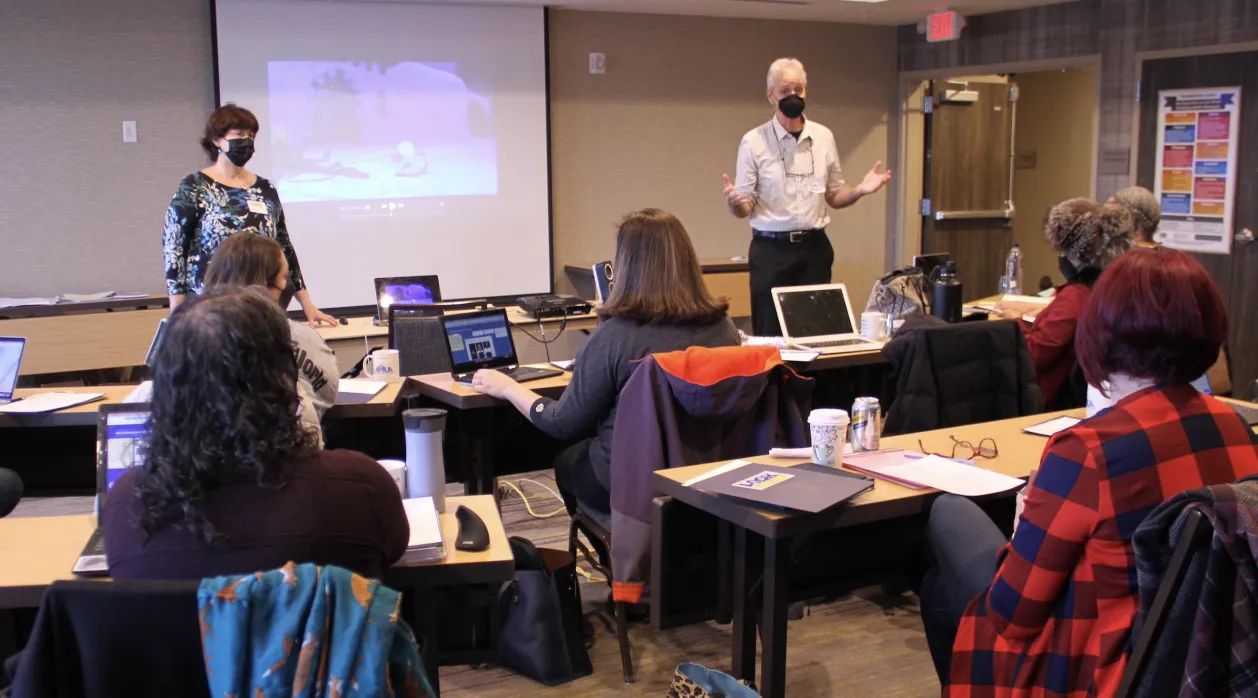When the COVID-19 pandemic hit an already fragmented media landscape during a presidential election year, people were sent scrambling to digest rolling rapids of complex and contradictory media messages. Too often, those audiences, including millions of children, were overwhelmed and under prepared.
Although US children ages 8-12 spend an average of four to six hours a day watching or using media with teens nearly doubling that amount, too few are formally taught to think critically about media messages. To combat that, Ithaca College’s media literacy program Project Look Sharp used a two-year, $270,000 grant from the Booth-Ferris Foundation to train two groups of 10 librarians from across New York State to work with teachers across grades and subjects to integrate media analysis into their curriculum. The goal is to create an ongoing statewide media literacy program, and the timing is opportune.
The current political climate and media landscapes have converged to create what Chris Sperry, director of curriculum and staff development for Project Look Sharp, calls a “crisis of truth that has helped the general public, but even more specifically, educators and administrators, to recognize the central importance of critical thinking about media messages, so it has really helped propel media literacy forward in many ways.”
Regardless of education or ideologies, audiences are embracing media messages that confirm their own beliefs while dismissing those that are contradictory. In questioning their own biases, students learn not just about the world but about themselves. But first they have to be taught that skill, and teachers have to be taught how to teach it.
